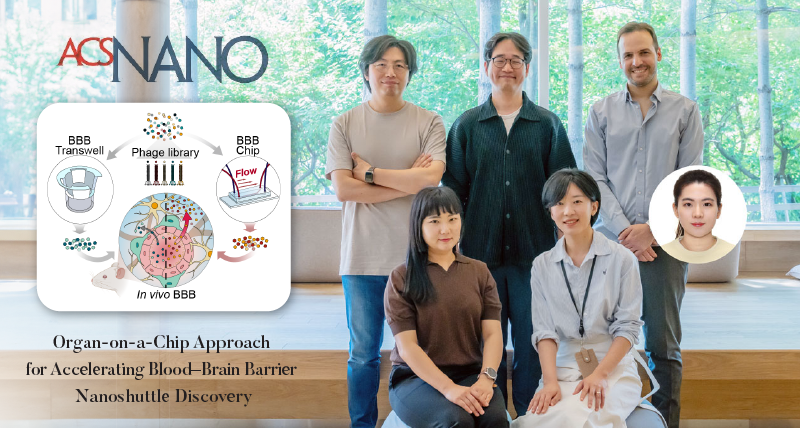
Optimizing drug delivery systems (DDS) for the biological environment of organs and blood vessels is crucial for maximizing the effectiveness of drug treatment. A research team, affiliated with UNIST has come up with a novel method to maximize the therapeutic efficacy of drugs through the utilization of organs-on-a-chip (OoC) technology. Our findings suggest that organ-on-a-chip technology holds considerable promise for advancing research in vascular-targeted DDS due to its accurate simulation of molecular transport within endothelial systems.
The research team, jointly led by Professors Tae-Eun Park and Taejoon Kwon in the Department of Biomedical Engineering at UNIST has created an organ-on-a-chip that mimics the blood-brain barrier (BBB) via mouse cell culture, resulting in significantly enhanced permeability of therapeutic drugs. Using the cell-based phage display screening method, they accurately simulated the physiological characteristics of organs, setting a new standard for in vitro modeling.
Their findings demonstrated enhanced cerebrovascular permeability compared to conventional transwell methods. The research team anticipates that OoC technology will make a significant contribution to the development of targeted treatments tailored to specific organs, including the liver, kidney, and lung, among others.
The accurate replication of the biological environment within the chip, including the structure and function of glycocalyx on blood vessel surfaces, enabled the discovery of an effective drug-delivery peptide through simulated blood flow. This advanced simulation of shear stress and glycocalyx structure enabled the discovery of an effective drug-delivery peptide, demonstrating its potential for targeted treatments in various organs, including liver, kidney, and lung.
The research team noted that OoC technology holds considerable promise for advancing research in vascular-targeted DDS due to its accurate simulation of molecular transport within endothelial systems.
Co-author Jeong-Won Choi highlighted the significance of this breakthrough, stating, “Long-term chip technology can be used as a powerful tool for discovering drug carriers with targeted functions by closely mimicking biological environments.” Co-author Kyungha Kim added, “We have proven that long-term chip technology can accurately model human biological tissues, opening new possibilities for future drug delivery system research.”
This work has been supported by the National Research Foundation of Korea (NRF), the Korea Health Technology R&D Project through the Korea Health Industry Development Institute (KHIDI), and UNIST. It has been also supported through the Dementia Overcoming Research and Development Project, the Mid-Career Researcher Project, the University-Focused Research Institute Support Project, and the UNIST Future Leading Specialized Project. Their findings were published in ACS NANO on May 22, 2024.
Journal Reference
Jeong-Won Choi, Kyungha Kim, Karakoz Mukhambetiyar, et al., “Organ-on-a-Chip Approach for Accelerating Blood–Brain Barrier Nanoshuttle Discovery,” (2024).